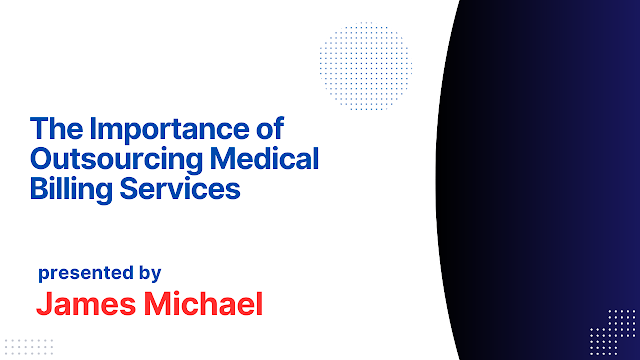The Importance of Outsourcing Medical Billing Services
In the fast-paced healthcare industry, medical practices are increasingly realizing the value of outsourcing their medical billing services. Efficient revenue cycle management is crucial for the financial success of any practice, and outsourcing allows healthcare providers to streamline their operations and focus on patient care. In this blog, we will explore the importance of outsourcing medical billing services and highlight the benefits it offers.
Outsourcing medical billing services provides healthcare practices with numerous advantages:
Expertise and Specialized Knowledge:
Outsourcing medical billing brings access to skilled professionals with specialized knowledge in coding, payer requirements, and regulatory compliance. These experts ensure accurate claim submissions, optimize coding scenarios, and minimize errors, leading to improved revenue and faster reimbursement cycles.
Enhanced Revenue Cycle Management:
By outsourcing medical billing, medical practices benefit from streamlined revenue cycle management. Billing companies employ advanced technologies and robust software systems to efficiently manage claims, track payments, and handle denials. This results in optimized revenue collection, reduced revenue leakage, and improved financial stability for the practice.
Reduced Administrative Burden:
Outsourcing medical billing alleviates the administrative burden on healthcare practices. Billing companies handle tasks such as claim submissions, payment posting, and follow-ups, allowing providers to focus on delivering quality care to their patients.
Compliance and Regulatory Adherence:
The ever-changing healthcare landscape requires practices to navigate complex regulations and compliance requirements. Outsourcing medical billing ensures that professionals stay updated with the latest guidelines, reducing the risk of errors, penalties, and audits.
Cost Savings and Financial Stability:
Outsourcing medical billing services leads to significant cost savings for practices. Eliminating the need to hire and train billing staff, invest in billing software, and maintain IT infrastructure reduces operational expenses. Additionally, efficient billing processes minimize claim denials, optimize reimbursements, and contribute to improved financial stability and profitability.
Access to Advanced Technology:
Outsourcing provides access to advanced billing technologies and software systems. Medical practices can leverage cutting-edge tools without significant investments, automating tasks, ensuring accurate coding, and gaining real-time visibility into the billing process for better decision-making.
Conclusion:
Outsourcing medical billing services is a strategic decision for healthcare practices to streamline operations, optimize revenue, and focus on delivering quality care. iRCM, Inc. is the leading medical billing company that offers expertise, efficient revenue cycle management, reduced administrative burden, compliance adherence, cost savings, and access to advanced technology.
By partnering with iRCM, Inc., practices can navigate the complexities of medical billing efficiently, ensuring improved financial outcomes and long-term success in the challenging healthcare landscape.

Comments
Post a Comment